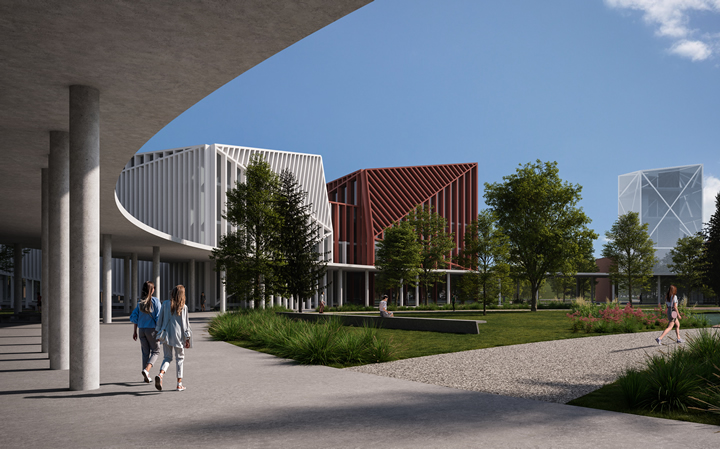Minister for Innovation and Technology, László Palkovics emphasized that: “The economic development strategy of the government relies on the higher education institutions as central knowledge industry actors substantially contributing to the development of the various sectors and their businesses. We intend to have the renewing research, development and innovation system built around the domestic universities and, to this end, we need to strengthen their relationships with businesses. This purpose is partly served by the science parks being established all over the country. It has to become self-evident that the results of research projects exploiting knowledge available at universities take the form of new technologies and products and find their way to being utilised in the market. For a clean Hungary and sustainable economic growth, the development of circular economy is an effort also supported by several measures under the Climate and Nature Protection Action Plan.”
The planned research, development and implementation projects of MOL-PE Circular Economy Science Park Nonprofit Zrt. target the development of internationally competitive circular technologies and products. They focus, among others, on circular waste management, renewable energies such as hydrogen economy, on the recycling of batteries, carbon dioxide utilisation, as well as sustainable water management.
Péter Cseresnyés, MP for the region pointed out that: “The largest company of the country, the city of Nagykanizsa and University of Pannonia are making an unprecedented investment largely relying on the knowledge built up in the city at MOL and at the twenty-year old university campus that will attract research projects, and thus researchers, to the city and will subsequently create jobs through significant investments resulting from such research projects. The cooperation focuses on the forward-looking research fields of circular economy deserving special attention globally, in Europe and in Hungary alike. The cooperation in various fields of research between a Hungarian company performing well in the competitive market and a university is a unique initiative in Hungary.”
Oszkár Világi, Managing Director, Innovative Businesses and Services, MOL Group said: “One of the pillars of MOL’s updated ‘2030+ Shape Tomorrow’ strategy is that we should become key actors in the low-carbon circular economy of the region. The creation of the knowledge base of the future in Nagykanizsa also contributes to this goal with its main task being the development of waste processing and recycling technologies that have a crucial role in a circular economy. MOL is committed towards the security of supply and sustainability and satisfies the growing energy demands in a way that, in the meantime, it also gradually creates the conditions for a carbon neutral future. Already next year, we foresee to spend HUF 310 billion on boosting circular economy and we will spare no effort to support the related research and development works.”
The project company is planning to build up the new facilities of the research institute (research and education centre, incubation centre, three explosion-proof laboratory buildings, water technology laboratories and suites for researchers) on an area of 18,000 m2 in Nagykanizsa, and will implement further investments in support of the RDI activities in Veszprém.
András Gelencsér, Rector of the University of Pannonia emphasised that: “I believe that the more than seven decades long research and development cooperation between MOL and the University of Pannonia, which has already brought numerous significant innovation results, is now moving to the next level with the current initiative. Its focus is also on one of the biggest challenges of the 21st century, namely the deliberate mitigation of the adverse effects of human activities on nature, the reduction of environmental impacts, the preservation of valuable resources for future generations. I hope that all these will support the economy and recognition of the region and the prosperity of those living here.”
The objectives of the science and innovation park also include the attraction of innovative companies, start-ups, spinoff businesses to the region leading to the launching of job creation projects in the medium term. Through the training of the new generation of economy and engineering experts of future sustainable industries, education will also have an important role.
 |
| MOL Circular Economy Science Park - Source: TIBA Építész Stúdió |
Budapest, 12 March 2021






